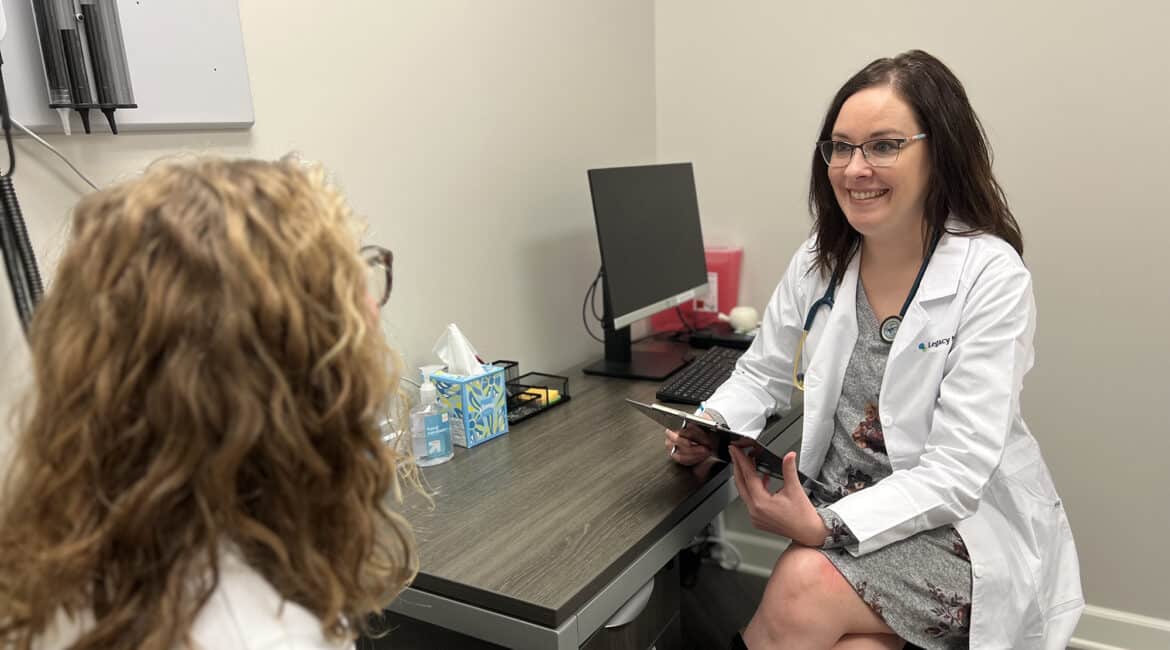May is here, and while we’re all anxiously awaiting those spring flowers to pop up, it’s also National Stroke Month and Mental Health Awareness Month. What do they have in common, you might ask? According to the American Heart Association, those who have a serious mental illness are at a higher risk of suffering a heart attack or a stroke! Another commonality between these issues is that seeing your primary care provider is an excellent start in managing these complex conditions!
As we all know, times are hard for many of us these days. When coping with problems starts to feel impossible, or when the blues become more than a cry now and again, it’s very important to seek help. Knowing the typical signs and symptoms may help you seek help sooner or recommend it to a loved one.
Common Mental Health Symptoms to be Aware of:
- Social Withdrawal
- Confusion
- Excessive Tearfulness
- Extreme Fatigue
- Difficulty Concentrating
- Alcohol/Drug use
- Changes in Eating Habits
- Intense Anger or Violent Behaviors
- Detaching from Reality
- Suicidal Thoughts or Ideation
What To Do About the Symptoms?
If you or a loved one is experiencing these symptoms, it’s very important to explore support. Your primary care provider is a wonderful first stop for finding all the tools necessary to manage mental health safely.
Primary care providers may be able to diagnose and treat your condition and make referrals to additional medical providers or mental health therapists for relief. They can also offer local resources for support groups that may be available in your area. Mental health is complex, and treatment is never one-size-fits-all; however, talking about your issues is the first step to receiving help to get back to being you again!
May is Stroke Awareness Month, too!
Strokes have many causes based on the following lifestyle choices and medical conditions, according to the Mayo Clinic:
- Diabetes
- Obesity
- Obstructive Sleep Apnea
- High Blood Pressure
- Smoking
- Alcohol
- Heart Disease
- Atrial Fibrillation
- Physical Inactivity
- COVID-19 Infection
Additional Factors that Raise Stroke Risks:
- Being Age 55+
- Being Male
- Race: African Americans and Hispanics are at an increased risk.
- Hormones (Taking birth control pills or estrogen therapies).
Warning Signs of a Stroke:
The CDC provides us with an acronym to remember about strokes: Remember to think “FAST.”
Face: Smile to determine if facial drooping is present.
Arms: Can you raise both arms, or is one/both dropping downward?
Speech: Sudden slurred speech is a sign of a stroke.
Time: Call 911 if you notice these above symptoms because time is of the essence with strokes.
How to Reduce Your Risk for Strokes & Improve Your Mental Health:
- Get regular exercise.
- Eat a colorful array of fresh fruits and vegetables.
- Avoid smoking.
- If you use alcohol, do so in moderation.
- Strengthen your support network by staying connected with those you love.
- Manage your stress level.
- Get regular health check-ups.
- If you have diabetes, work with your providers to get it under control.
- Sleep on a regular schedule.
Maintaining your health and wellness is a commitment. If you’re already under duress, start small and work with your healthcare providers on a care plan to feel your best.
If you or someone you know is experiencing a medical or mental health emergency, you can dial 911 to get the help you need!
If you’d like to learn more about how Legacy Medical can help you in our walk-in clinic in Grand Forks, ND, or one of our senior living communities, don’t hesitate to contact us at info@legacymedical.com.





